Baltic Leader En Route to Benghazi: Indicators of Renewed Russian Strategic Logistics in North Africa
- RFN- OS
- Jun 11
- 2 min read
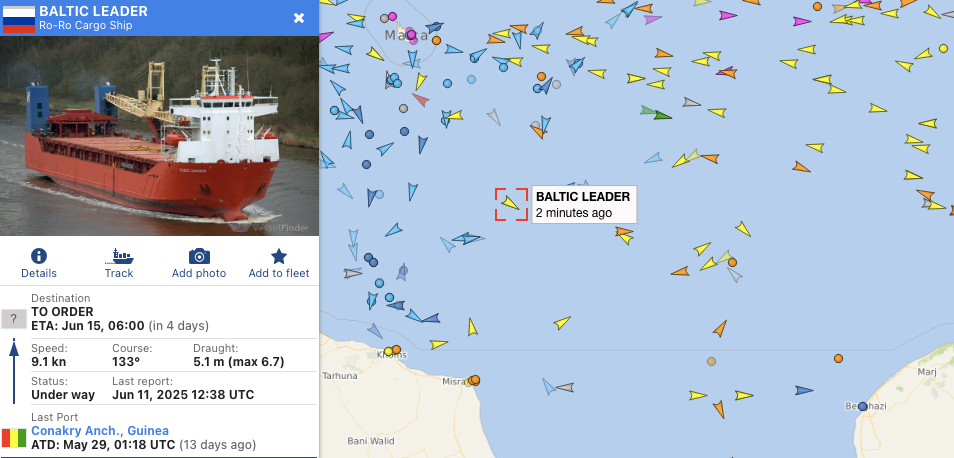
The Russian-flagged merchant vessel Baltic Leader, previously sanctioned for its involvement in illicit arms transfers, is currently on a south-easterly course toward the Libyan coast. As of 11 June 2025 at 11:43 UTC, the vessel was located at coordinates 34.2828°N, 15.6258°E, maintaining a heading of 133° at a speed of 9.4 knots. Estimated time of arrival (ETA) at the port of Benghazi is 12 June 2025 at 14:55 UTC.
The Baltic Leader is operated by MG-Flot LLC and leased via PSB Leasing, an entity closely linked to Russia’s defense-industrial complex and sanctioned for its role in military logistics support.
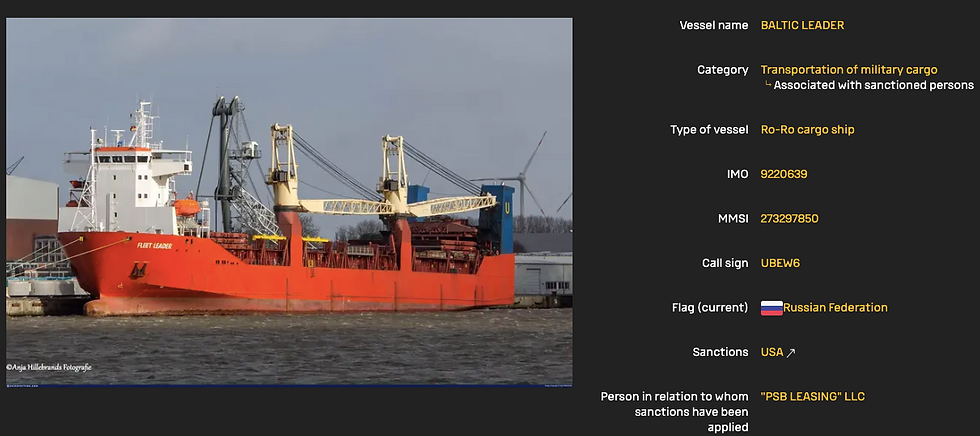
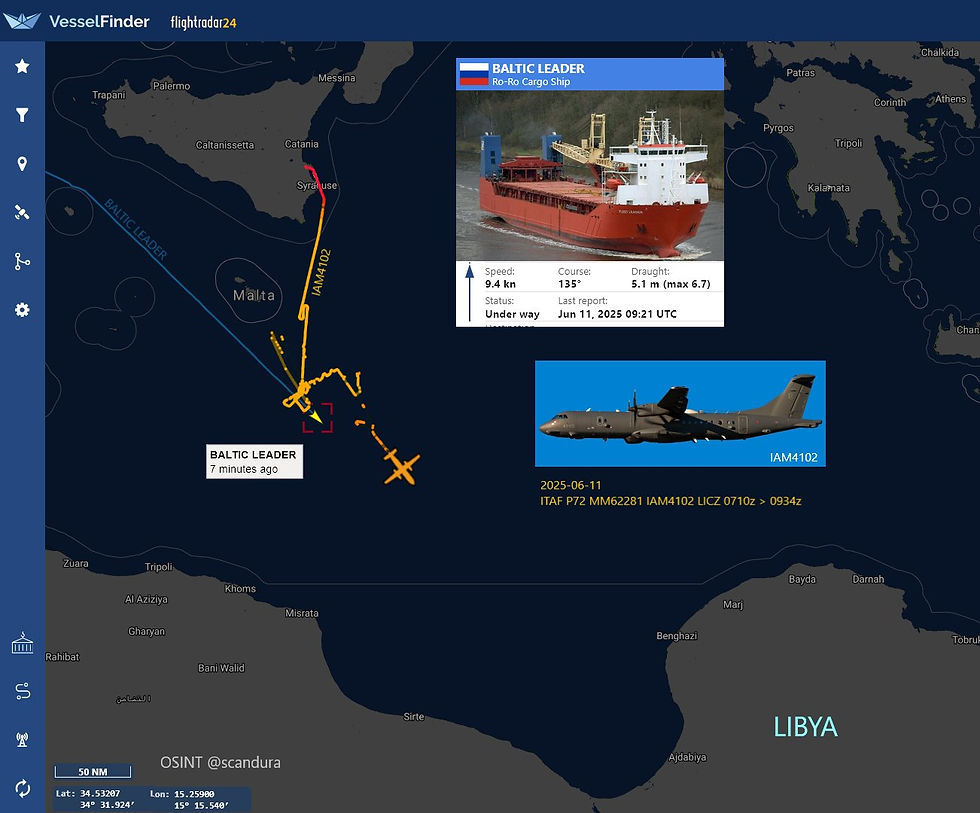
The vessel recently conducted offload operations in Conakry, Guinea, where open-source intelligence (OSINT) indicates it delivered military materiel and dual-use equipment of Russian origin. https://x.com/RFNOSBlog
This movement aligns with a notable event on 26 May 2025, when the Libyan National Army (LNA) conducted a high-visibility military parade south of Benghazi. Imagery analysis and field reporting from the parade identified the presence of Russian-manufactured armored vehicles and associated support equipment, suggesting recent inflows of Russian defense material into eastern Libya.
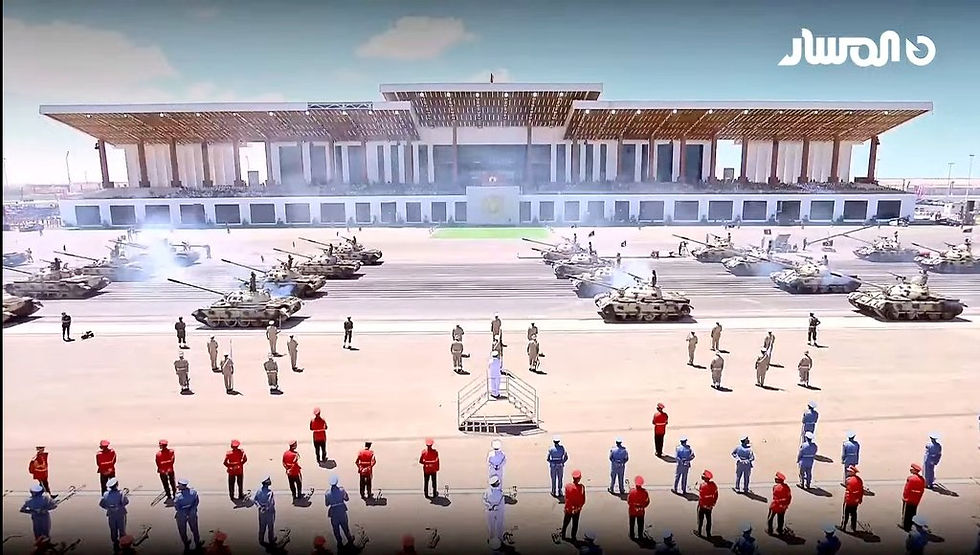
The convergence of these timelines and maritime activities suggests a resumption—or escalation—of Russian military-logistics operations supporting proxy or partner forces in North Africa. This reflects a strategic recalibration of Russian force posture and influence projection following the drawdown of assets from Syria and the reorientation of operational reach within the Mediterranean basin.
The arrival of the Baltic Leader in Benghazi is tactically significant, potentially marking the reactivation of a maritime supply line similar in function to the former "Syrian Express"—but now adapted for the Libyan theatre. This emerging logistics corridor enhances Russia's capacity for strategic sustainment and forward presence in the central Mediterranean, reinforcing its alignment with LNA forces under Field Marshal Khalifa Haftar.
For NATO and its partners, this activity merits close monitoring. It indicates a shift in Russian maritime military logistics toward North Africa, potentially impacting regional stability and challenging freedom of navigation and strategic balance in the southern flank. The use of sanctioned commercial vessels to deliver military cargo underlines the continued exploitation of hybrid logistical tactics by the Russian Federation to circumvent international restrictions and project power in contested regions.
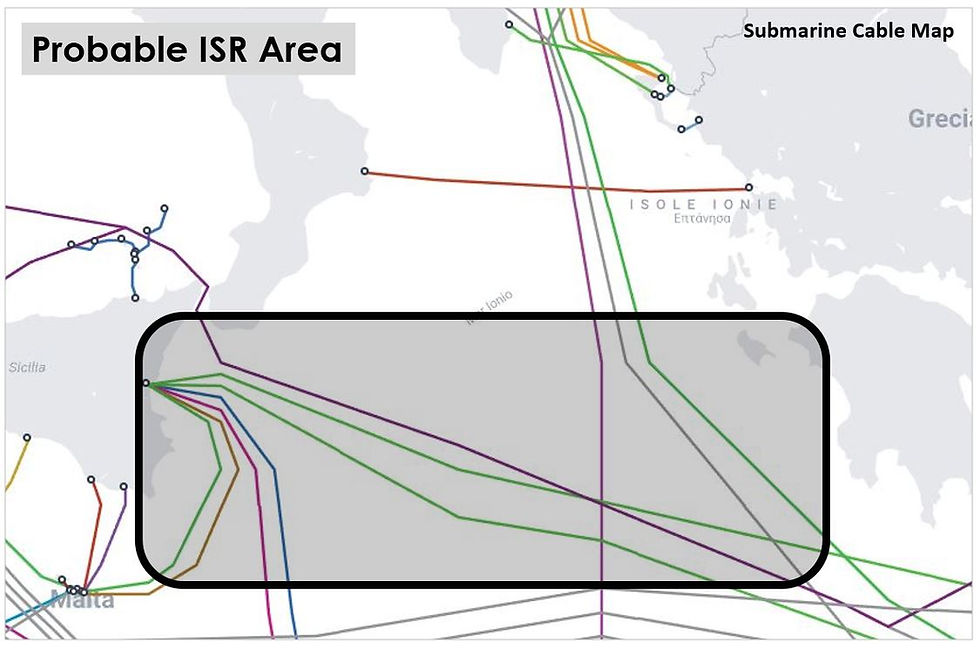

Comments